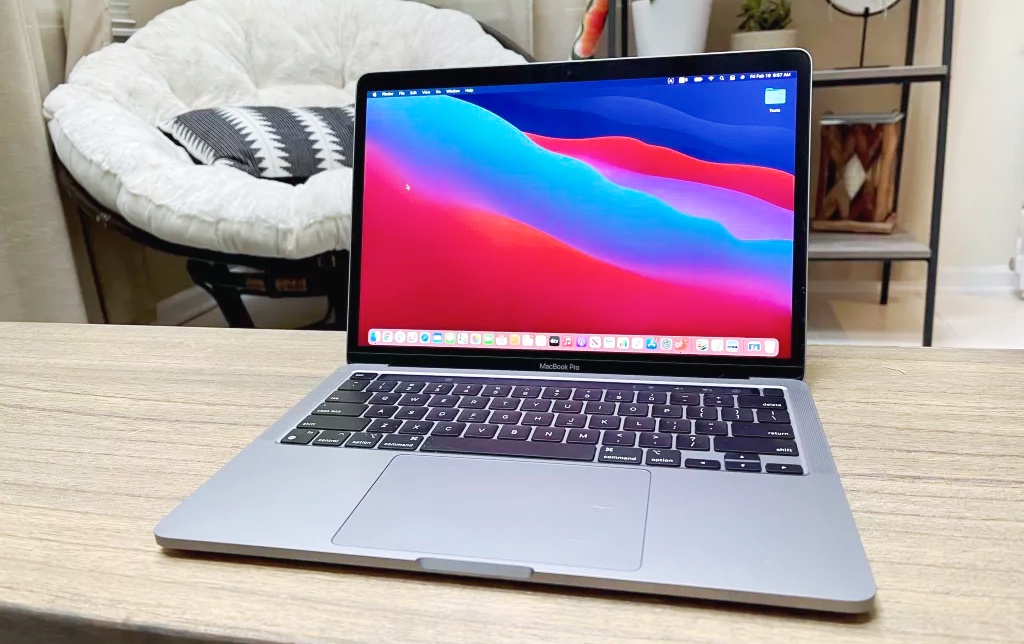The age of the Intel Mac is officially over — what that means for your macOS updates
Apple Silicon has taken over, but there's still life in Intel machines

Here at Tom’s Guide our expert editors are committed to bringing you the best news, reviews and guides to help you stay informed and ahead of the curve!
You are now subscribed
Your newsletter sign-up was successful
Want to add more newsletters?

Daily (Mon-Sun)
Tom's Guide Daily
Sign up to get the latest updates on all of your favorite content! From cutting-edge tech news and the hottest streaming buzz to unbeatable deals on the best products and in-depth reviews, we’ve got you covered.

Weekly on Thursday
Tom's AI Guide
Be AI savvy with your weekly newsletter summing up all the biggest AI news you need to know. Plus, analysis from our AI editor and tips on how to use the latest AI tools!

Weekly on Friday
Tom's iGuide
Unlock the vast world of Apple news straight to your inbox. With coverage on everything from exciting product launches to essential software updates, this is your go-to source for the latest updates on all the best Apple content.

Weekly on Monday
Tom's Streaming Guide
Our weekly newsletter is expertly crafted to immerse you in the world of streaming. Stay updated on the latest releases and our top recommendations across your favorite streaming platforms.
Join the club
Get full access to premium articles, exclusive features and a growing list of member rewards.
The Intel Mac is one step closer to joining the likes of the iPod and the Apple Newton. Following the launch of the new Mac Pro at WWDC 2023, powered by the new M2 Ultra chip, it means all Apple’s desktops now run on Apple-made chips. Now the only question is, how long will it be before the Intel machines are officially declared obsolete?
Hopefully that changeover won’t come for some time. The M1, Apple’s first in-house desktop chip, didn’t launch until November 2020 — just over two and a half years ago. Meanwhile macOS 14 Sonoma, which launches later this year, still supports plenty of Intel machines.
According to Apple, Intel-powered MacBook Air and MacBook Pro machines from 2018 onwards will still be compatible with the Sonoma update. As will the 2017 iMac Pro, 2018 Mac mini, 2019 iMac, 2019 Mac Pro and any newer variants of those machines that exist with Intel chips.
It’s not a huge list, since Apple has been very keen to push its products onto Apple Silicon. Still it suggests that Intel Macs still have a few years left in them, certainly in terms of the latest and best macOS updates.
Apple does maintain older versions of macOS for a time, as evidenced by updates to macOS 11 and macOS 12 whose latest updates rolled out last month. But there’s no telling how long that support will last. macOS 10.15 Catalina was first released in 2019, and now hasn’t had a major update since July 2022.
Of course, being supported by new software doesn’t always guarantee that everything will be available. 9to5Mac notes that some macOS Sonoma features aren’t available on Intel macs, such as Game Mode or the solos “Siri” wake word. The same is true of iPhones, even though iOS 17 will support iPhones up to and including the 2018 iPhone Xs. They just don’t have the hardware for certain things, like the Emergency SOS via Satellite feature.
Companies do regularly send out updates when the consequences are serious, such as the discovery of a fatal flaw or security hole. Apple is no exception. Not that we recommend sticking with unsupported software for longer than you need to, of course. Regular security updates are the best protection you can get.
Get instant access to breaking news, the hottest reviews, great deals and helpful tips.
It’s clear that Intel-powered macs, like any high-tech product, do have an expiration date — and the older your device the sooner it will be. But you’ve probably got another couple of years before that actually becomes a problem — especially if you bought an Intel MacBook in 2020.
But it is still worth keeping in the back of your mind, especially given the huge leap in performance, efficiency and battery life afforded by Apple Silicon chips. The jump from Intel to the M1 chip was significant enough, and as Apple said during the WWDC keynote any Intel Mac users are likely to be blown away by an Apple Silicon machine.
So there’s no rush, but maybe start saving those pennies for an upgrade if you can.
More from Tom's Guide
- iOS 17 StandBy Mode looks amazing — but it’s also a missed opportunity
- My air purifier saved me during NYC’s air quality crisis
- The Apple Vision Pro officially starts the post-iPhone era — here’s why

Tom is the Tom's Guide's UK Phones Editor, tackling the latest smartphone news and vocally expressing his opinions about upcoming features or changes. It's long way from his days as editor of Gizmodo UK, when pretty much everything was on the table. He’s usually found trying to squeeze another giant Lego set onto the shelf, draining very large cups of coffee, or complaining about how terrible his Smart TV is.
 Club Benefits
Club Benefits





